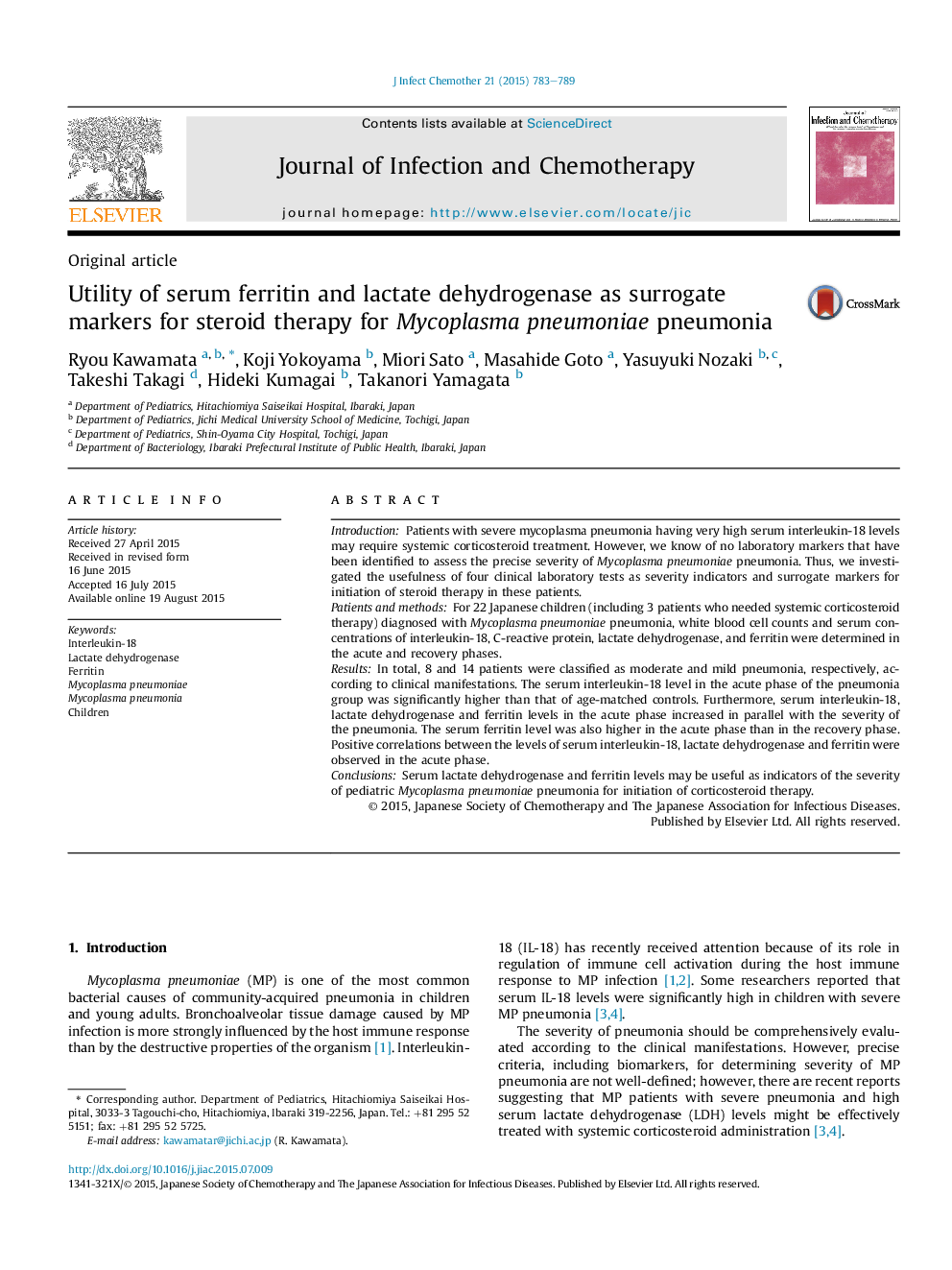| Article ID | Journal | Published Year | Pages | File Type |
|---|---|---|---|---|
| 3376762 | Journal of Infection and Chemotherapy | 2015 | 7 Pages |
IntroductionPatients with severe mycoplasma pneumonia having very high serum interleukin-18 levels may require systemic corticosteroid treatment. However, we know of no laboratory markers that have been identified to assess the precise severity of Mycoplasma pneumoniae pneumonia. Thus, we investigated the usefulness of four clinical laboratory tests as severity indicators and surrogate markers for initiation of steroid therapy in these patients.Patients and methodsFor 22 Japanese children (including 3 patients who needed systemic corticosteroid therapy) diagnosed with Mycoplasma pneumoniae pneumonia, white blood cell counts and serum concentrations of interleukin-18, C-reactive protein, lactate dehydrogenase, and ferritin were determined in the acute and recovery phases.ResultsIn total, 8 and 14 patients were classified as moderate and mild pneumonia, respectively, according to clinical manifestations. The serum interleukin-18 level in the acute phase of the pneumonia group was significantly higher than that of age-matched controls. Furthermore, serum interleukin-18, lactate dehydrogenase and ferritin levels in the acute phase increased in parallel with the severity of the pneumonia. The serum ferritin level was also higher in the acute phase than in the recovery phase. Positive correlations between the levels of serum interleukin-18, lactate dehydrogenase and ferritin were observed in the acute phase.ConclusionsSerum lactate dehydrogenase and ferritin levels may be useful as indicators of the severity of pediatric Mycoplasma pneumoniae pneumonia for initiation of corticosteroid therapy.
